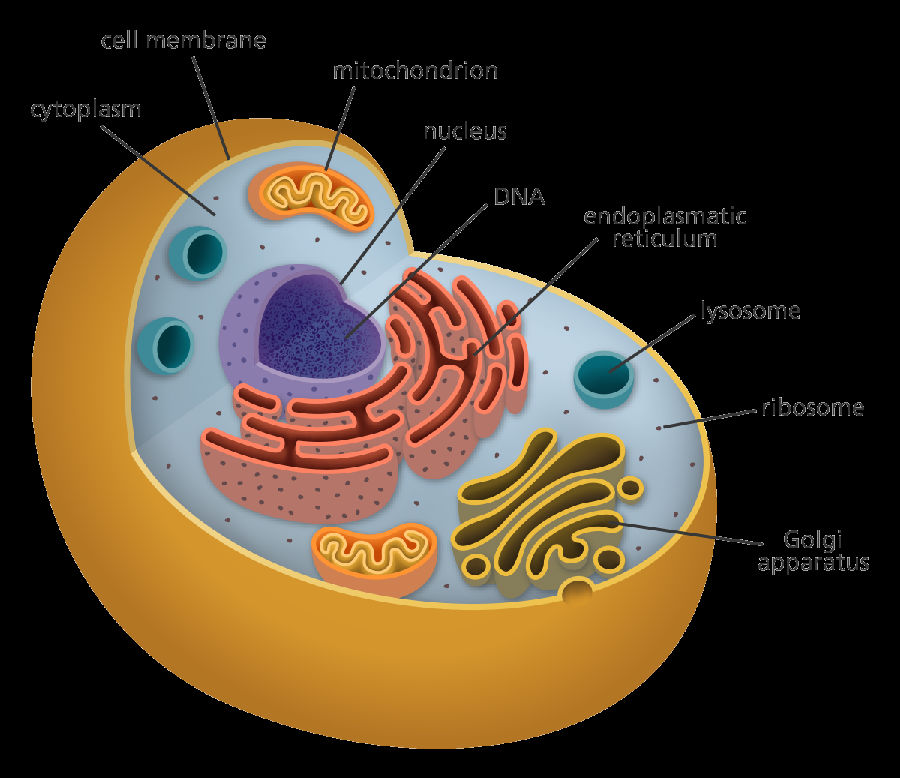The cell has been compared to many things, from "a complex chemical refinery" (by the physicist James Trefil) to "a vast, teeming metropolis" (the biochemist Guy Brown). A cell is both of those things and neither. It is like a refinery in that it is devoted to chemical activity on a grand scale, and like a metropolis in that it is crowded and busy and filled with interactions that seem confused and random but clearly have some system to them. But it is a much more nightmarish place than any city or factory that you have ever seen. To begin with there is no up or down inside the cell (gravity doesn't meaningfully apply at the cellular scale), and not an atom's width of space is unused. There is activity every where and a ceaseless thrum of electrical energy. You may not feel terribly electrical, but you are. The food we eat and the oxygen we breathe are combined in the cells into electricity. The reason we don't give each other massive shocks or scorch the sofa when we sit is that it is all happening on a tiny scale: a mere 0.1 volts traveling distances measured in nanometers. However, scale that up and it would translate as a jolt of twenty million volts per meter, about the same as the charge carried by the main body of a thunderstorm.

Whatever their size or shape, nearly all your cells are built to fundamentally the same plan: they have an outer casing or membrane, a nucleus wherein resides the necessary genetic information to keep you going, and a busy space between the two called the cytoplasm.












